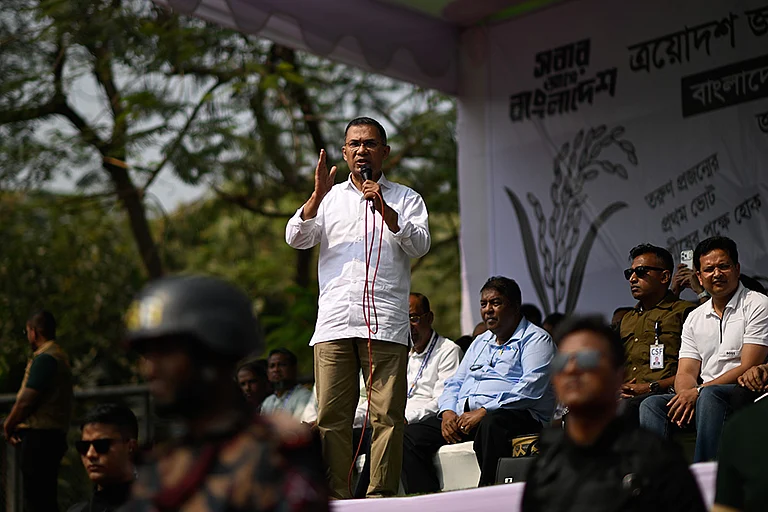Father Stan Swamy did not die alone earlier this month. Irony died alongside too as several opposition leaders—always quick to score a political point—came together shortly afterwards to sign a letter to the country’s President, complaining about the injustice done to the jailed tribal rights campaigner and the ‘draconian’ nature of the Unlawful Activities (Prevention) Act (UAPA), the anti-terrorism law the authorities used to arrest him. A lot has been said and written since Swamy’s death, and none in the right frame of mind can justify the sad circumstances that engulfed his final hours and days. The motley group of opposition leaders was right in highlighting the travesty. But where many of them went wrong was that they did not turn the spotlight on themselves and left many things unsaid.
Meant for our well-being, our terror laws—some archaic, but all stringent—are wrecking lives. As in the case of Swamy and hundreds of others languishing in jails across the country, these laws are being invoked to quell discontent and silence dissent. Originally meant to protect the State, laws such as UAPA, National Security Act (NSA), and the one against sedition are being flagrantly misused to preserve those in power. And in doing so, none—including opposition signatories such as Sonia Gandhi, Mamata Banerjee or Sitaram Yechury—can claim a higher moral ground. Track records of the governments they ran or continue to run tar them equally.
For all practical purposes, the misuse of terror laws is not a problem of a particular political party. If Swamy had to pay the price for the legal overreach on the BJP’s watch, many more have had their lives turned upside down under others as well, for instance, the Congress, the Trinamool Congress, and the Communists. When it comes to short-circuiting a due and fair judicial process, there are clearly no saints. The UAPA, for one, was amended and given more teeth when the Congress ruled the nation, and P. Chidambaram, its home minister who now preaches morality from his perch as a columnist, had waxed eloquent then on how and why locking up people without easy access to bail had its virtues.
That Chidambaram currently finds himself at the receiving end of a probe by one of our investigating agencies and has had to spend some days behind the bars is beside the point. What is more telling is the manner in which our terror laws are being misused to jail people, irrespective of the party in power. Every time there is a Maoist attack on security forces in Chhattisgarh, scores of local tribals are arrested in big swoops and thrown into prisons for conspiring against the State. The charges are rarely proved in court, yet they spend years forfeiting their freedom.
ALSO READ: Abusing The Terror Laws Over The Years
It’s the same in Uttar Pradesh, Rajasthan, Andhra Pradesh, West Bengal and elsewhere. In Rajasthan, people have been detained under the stringent law of sedition for palpably seeking to unseat the government. In Mamata’s Bengal, activists had to serve prison time under UAPA for resisting slum eviction for a power project. In Manipur, a journalist has been repeatedly jailed—thrice in three years—for what could be best described as intemperate tweets against those in power. Much of the rampant abuse can be attributed to the lack of accountability. As and when those accused are acquitted after spending years in jail, no official is ever held accountable. In the absence of legal loopholes, no one is immediately punished or made to pay reparations. Let off the hook minus penalties, the abuse of laws goes unchecked.
Such blatant misuse must stop and this issue of Outlook—a periodical sworn to public interest—calls for that. Legal scholar Faizan Mustafa puts it in perspective in the following pages, quoting a French jurist: “Every punishment which does not arise from absolute necessity is tyrannical.” That being the case, the tyranny of terror laws must not have any place in free India.
(This appeared in the print edition as "Lawful Terror")
Ruben Banerjee, group Editor-in-Chief

























